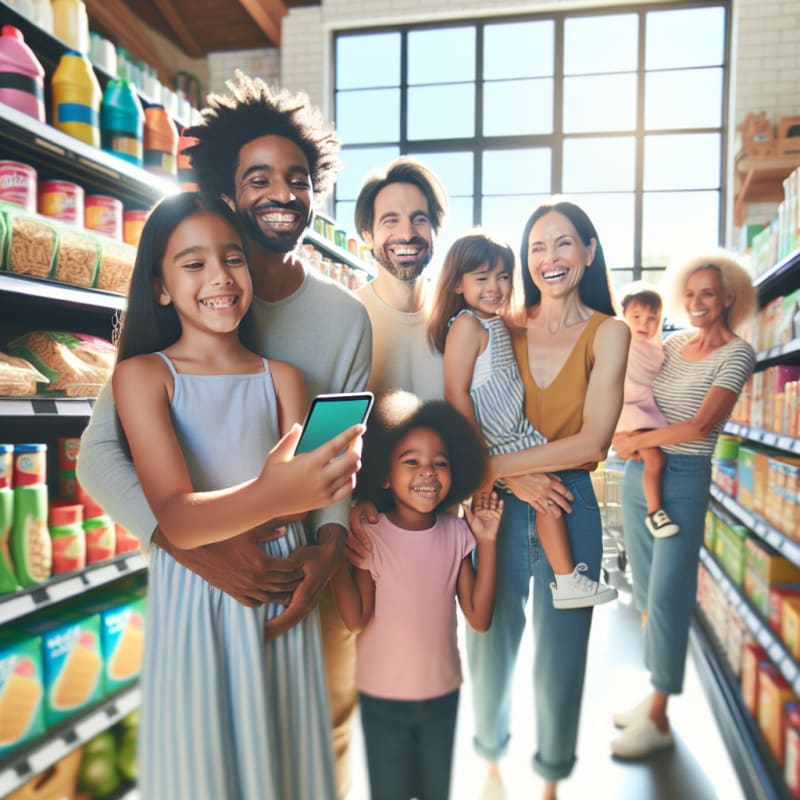Detroit Athletic Club Launches Kosher Kitchen: What It Means for Food Safety, Dietary Laws, and Smart Choices
By Food Scan Genius Team
Last week, Sarah, a Detroit mom, found herself anxiously scanning a pasta label at a family event. Her son, who has multiple food sensitivities, had just broken out in hives. Was it a hidden allergen? Was it a cross-contamination issue? For families like Sarah’s, dining out or attending events can feel like navigating a minefield of dietary risks and uncertainties.
Detroit Athletic Club Sets a New Standard with Kosher Kitchen
The Detroit Athletic Club (DAC) has taken a major step toward food inclusivity by introducing a dedicated kosher kitchen under Orthodox supervision (source). This move, announced in June 2024, means that members and guests with kosher, vegetarian, or allergy-related dietary needs can now dine with greater confidence and transparency.
Key Features of the DAC Kosher Kitchen:
- Orthodox Rabbinical Supervision ensures strict adherence to kosher laws and minimizes cross-contamination.
- Separate Preparation Areas for meat, dairy, and pareve foods to prevent allergen and ingredient mixing.
- Allergen Awareness Training for staff, supporting members with food sensitivities.
Why Kosher Kitchens Matter for Food Safety and Dietary Preferences
For people with food allergies, sensitivities, or ethical dietary preferences, kosher kitchens provide more than religious compliance—they offer a model for ingredient transparency and cross-contamination prevention (FDA).
| Benefit | How Kosher Kitchens Help |
|---|---|
| Allergen Control | Strict separation of foods and utensils reduces risk of accidental exposure. |
| Ingredient Transparency | Detailed record-keeping and labeling support informed choices. |
| Ethical Eating | Supports those seeking humane, traceable, or religiously compliant food. |
Food Labeling Laws: U.S. vs. Europe
Ingredient and allergen labeling is governed by strict laws, but requirements differ by region:
- United States (FDA): The Food Allergen Labeling and Consumer Protection Act (FALCPA) mandates clear disclosure of the top 9 allergens (e.g., milk, eggs, peanuts, tree nuts, wheat, soy, fish, shellfish, sesame).
- European Union (EFSA): The EU Food Information for Consumers Regulation requires labeling of 14 allergens, including celery, mustard, lupin, and sulfites, and mandates bold type for allergens in ingredient lists.
These differences can impact travelers, expats, and anyone importing food products. The DAC’s kosher kitchen, with its rigorous standards, offers a layer of assurance beyond standard labeling.
Stay Informed: Food Safety Alerts, New Regulations, and Trends
- Food Safety Alerts: The FDA recently issued recalls for certain dairy products due to potential Listeria contamination. Always check labels and scan products for up-to-date alerts.
- Dietary Regulations: The EU is considering new bans on certain food colorants and additives, aiming to improve consumer safety (FoodNavigator).
- Emerging Trends: Plant-based and keto-friendly options are on the rise, with brands reformulating products to meet demand (Food Dive).
Such changes can affect people with food sensitivities, religious diets, or ethical food concerns. Staying updated is crucial for safe and smart choices.
How Food Scan Genius Simplifies Smart Food Choices
Whether you’re managing allergies, following kosher or vegan diets, or just want to avoid unwanted ingredients, Food Scan Genius empowers you to:
- Scan barcodes to instantly check for allergens, kosher status, and ingredient details.
- Receive real-time alerts about product recalls, contamination, or regulatory changes.
- Compare ingredient lists across U.S. and EU versions for informed choices when traveling or shopping internationally.
User Testimonial: “Food Scan Genius saved my family’s holiday. At a catered event, I scanned a dish and instantly saw it contained sesame—an allergen not listed on the menu. I highly recommend it to anyone with food sensitivities!” – Rachel M., Detroit
Frequently Asked Questions
What is a kosher kitchen and how does it help with food sensitivities?
A kosher kitchen is a food preparation area that follows Jewish dietary laws, with strict separation of meat, dairy, and pareve foods. This separation and oversight help prevent cross-contamination, making it safer for people with allergies or sensitivities.
How can I check if a product is kosher or allergen-free?
Use apps like Food Scan Genius to scan product barcodes and access up-to-date information on kosher certification and allergen content.
Are ingredient labeling laws the same in the U.S. and Europe?
No. The U.S. FDA requires labeling of 9 major allergens, while the EU requires 14. The EU also has stricter rules on ingredient disclosure and formatting.
Conclusion: Empowering Families for Safer, Smarter Food Choices
For parents like Sarah, understanding what’s in your food—and how it’s prepared—can be life-changing. The Detroit Athletic Club’s new kosher kitchen is a win for inclusivity and safety, but the real power lies in knowledge. With tools like Food Scan Genius, anyone can scan, check, and choose with confidence, whether at home, at a club, or abroad. Download Food Scan Genius today at scangeni.us and make every meal a safe meal.
References: FDA Food Allergens (FDA.gov), EFSA Food Allergens (EFSA.europa.eu), PubMed: Kosher Food Safety (PubMed), FoodNavigator (source), Food Dive (source).






2 Comments
[…] Safety: Avoiding cross-contact ensures meals are safe to eat. […]
[…] food allergies. Let’s look at tips to make your cooking space a allergen-free cooking and cross-contamination prevention […]